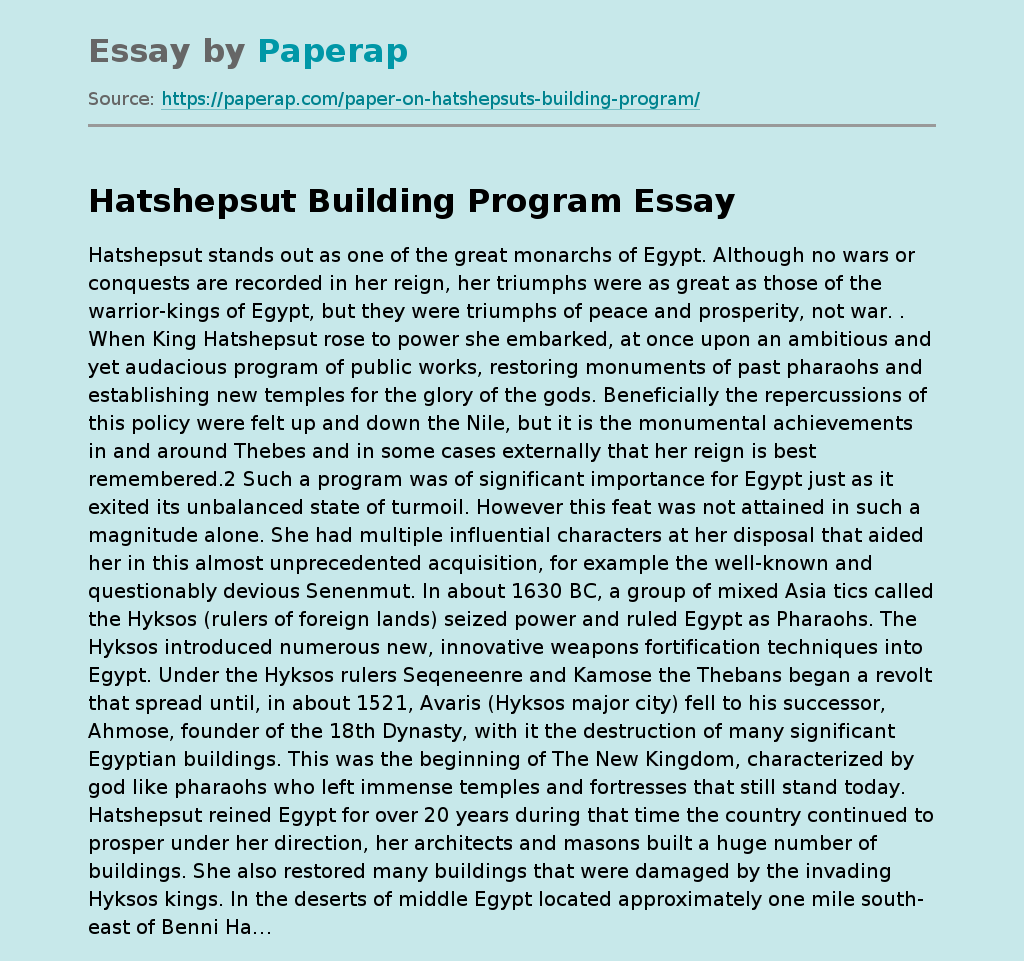Hatshepsut Building Program
Hatshepsut stands out as one of the great monarchs of Egypt. Although no wars or conquests are recorded in her reign, her triumphs were as great as those of the warrior-kings of Egypt, but they were triumphs of peace and prosperity, not war. . When King Hatshepsut rose to power she embarked, at once upon an ambitious and yet audacious program of public works, restoring monuments of past pharaohs and establishing new temples for the glory of the gods. Beneficially the repercussions of this policy were felt up and down the Nile, but it is the monumental achievements in and around Thebes and in some cases externally that her reign is best remembered.
2 Such a program was of significant importance for Egypt just as it exited its unbalanced state of turmoil. However this feat was not attained in such a magnitude alone. She had multiple influential characters at her disposal that aided her in this almost unprecedented acquisition, for example the well-known and questionably devious Senenmut.
In about 1630 BC, a group of mixed Asia tics called the Hyksos (rulers of foreign lands) seized power and ruled Egypt as Pharaohs. The Hyksos introduced numerous new, innovative weapons fortification techniques into Egypt. Under the Hyksos rulers Seqeneenre and Kamose the Thebans began a revolt that spread until, in about 1521, Avaris (Hyksos major city) fell to his successor, Ahmose, founder of the 18th Dynasty, with it the destruction of many significant Egyptian buildings. This was the beginning of The New Kingdom, characterized by god like pharaohs who left immense temples and fortresses that still stand today.
Hatshepsut reined Egypt for over 20 years during that time the country continued to prosper under her direction, her architects and masons built a huge number of buildings. She also restored many buildings that were damaged by the invading Hyksos kings. In the deserts of middle Egypt located approximately one mile south-east of Benni Ha…
Hatshepsut Building Program. (2019, Dec 05). Retrieved from https://paperap.com/paper-on-hatshepsuts-building-program/

